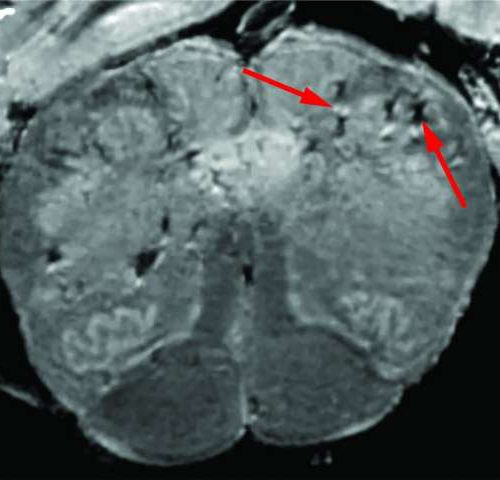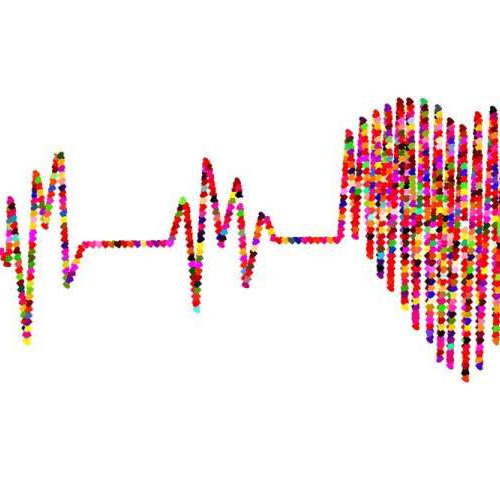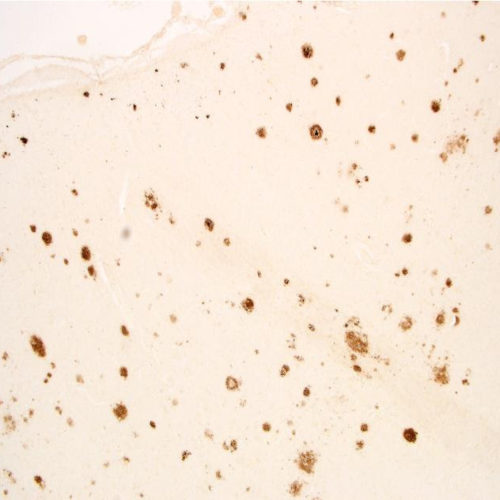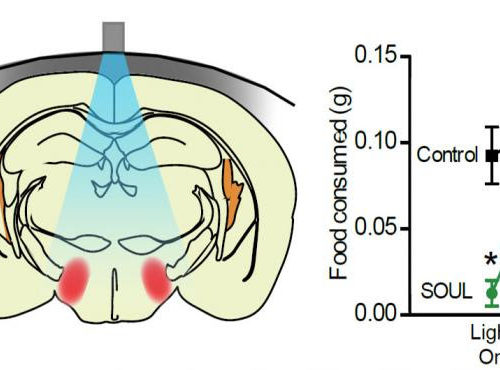by National Institutes of Health In an in-depth study, NIH researchers consistently found blood vessel damage in the brains of COVID-19 patients but no signs of SARS-CoV-2 infections. Here is a high-resolution scan of a patient’s brain stem. Arrows point to light and dark spots that are indicative of blood vessel damage observed in the study....
Tag: <span>Brain damage</span>
High blood pressure in midlife is linked to increased brain damage in later life
by European Society of Cardiology Higher than normal blood pressure is linked to more extensive brain damage in the elderly, according to a new study published today in the European Heart Journal. In particular, the study found that there was a strong association between diastolic blood pressure (the blood pressure between heart beats) before the age of 50 and brain damage in later...
Study finds identical signs of brain damage in sleep apnea and Alzheimer’s
RMIT UNIVERSITY IMAGE: THE STUDY SHOWED THE SEVERITY OF SLEEP APNEA WAS LINKED WITH A CORRESPONDING BUILD-UP OF AMYLOID PLAQUES (SEEN HERE AS BROWN PATCHES IN THE BRAIN TISSUE). New research has confirmed long-suspected links between sleep apnea and Alzheimer’s disease, finding identical signs of brain damage in both conditions. While the cause of Alzheimer’s disease remains...
Implant-free optogenetics minimizes brain damage during neuronal stimulation
A minimally invasive optogenetic technique that does not require brain implants successfully manipulated the activity of neurons in mice and monkeys, researchers report April 29th in the journal Neuron. The researchers first genetically engineered neurons to produce a newly developed, extremely light-sensitive protein called SOUL. They then demonstrated that it is possible to shine light...
The ‘Mandela effect’ and the science of false memories
by Neil Dagnall And Ken Drinkwater, The Conversation There’s a theory doing the rounds online that nuclear research experiments caused the world to shift into an alternate reality where Donald Trump became president. This might sound stupid, but some people genuinely believe it to be true. And to back up their theory they cite the “Mandela effect,” a phenomenon...
How does your brain take out the trash?
By Tim Newman Fact checked by Gianna D’Emilio In this Spotlight, we introduce the glymphatic system: the brain’s dedicated waste clearance system. Now implicated in various conditions, it is high time that we became acquainted. Many of us are relatively familiar with the lymphatic system; it performs a number of roles, one of which is...
A new pathway for an anti-aging drug
by Morgan Sherburne, University of Michigan In 1972, Easter Island, called Rapa Nui, famous for its moai statues, offered a new wonder: the discovery of the drugrapamycin. Over the past three decades, rapamycin, which was isolated from soil bacteria, has been applied as an immuno-suppressor in a multitude of ways, including to coat coronary stents and to reduce the...
New approach to stroke treatment could minimize brain damage
UNIVERSITY OF BRITISH COLUMBIA A new treatment for a common type of stroke may soon be possible, thanks to a discovery by an international team of researchers led by the University of British Columbia. In a study published today in the Journal of Experimental Medicine, researchers successfully used a new approach that significantly minimized brain damage caused by stroke in mouse models. The new approach works by targeting hemichannels–pathways that allow for...
Old cells repair damage in the brains of multiple sclerosis patients
A new study shows that there is a very limited regeneration of cells in the brains of patients diagnosed with multiple sclerosis (MS). These findings underline the importance of treating MS at an early stage of disease progression, when the affected cells can repair the damage, as they are not replaced by new ones. The...
Sleep deprivation accelerates Alzheimer’s brain damage
Poor sleep has long been linked with Alzheimer’s disease, but researchers have understood little about how sleep disruptions drive the disease. Credit: CC0 Public Domain Now, studying mice and people, researchers at Washington University School of Medicine in St. Louis have found that sleep deprivation increases levels of the key Alzheimer’s protein tau. And, in...




